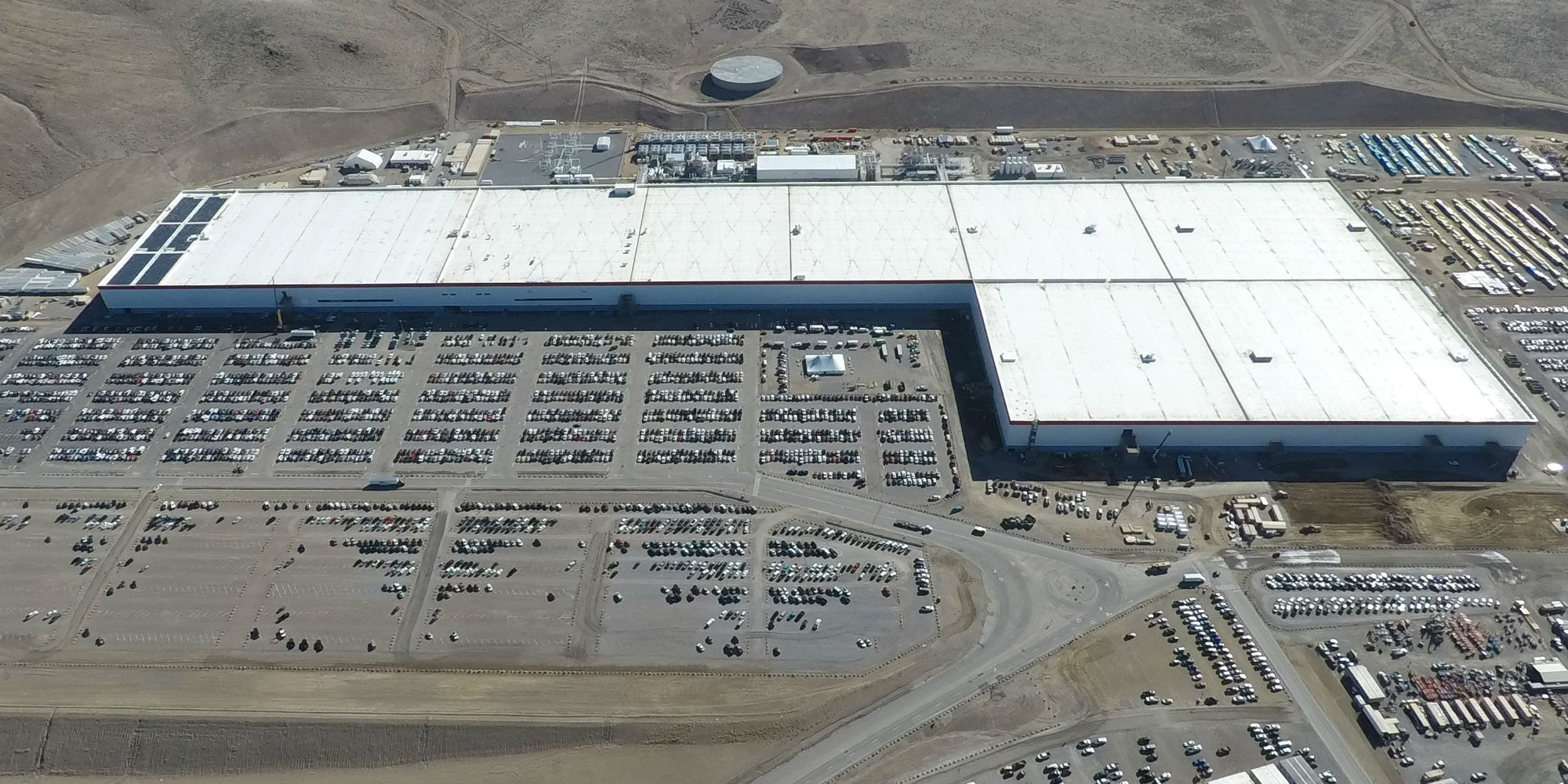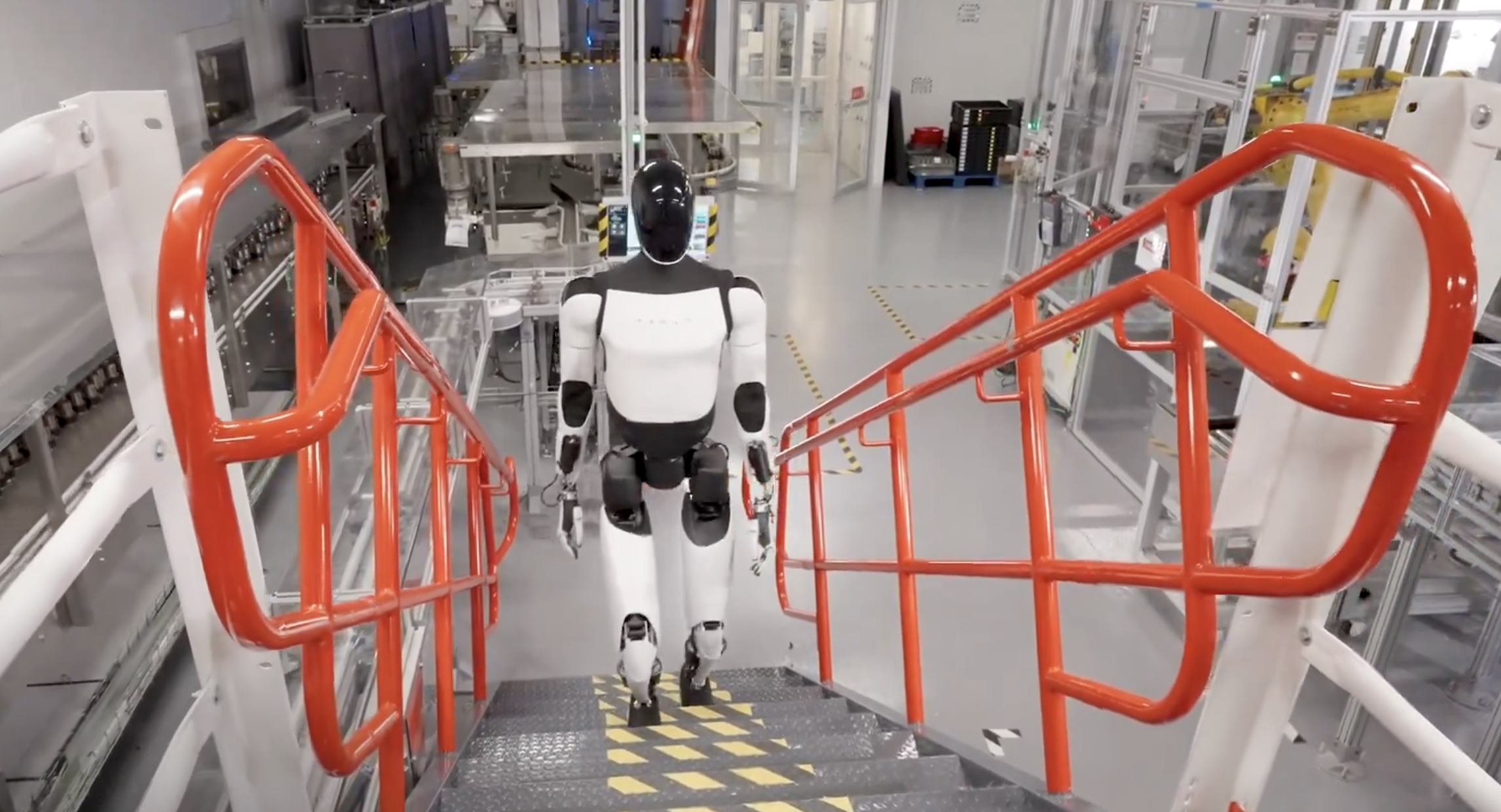

Investor's Corner
Tesla Gigafactory 1 to see Panasonic’s new battery lines and new Grohmann machines in Q4
Tesla’s upcoming ramp this Q4 2018 is starting to look a lot more encouraging, as Gigafactory 1, the company’s battery and powertrain facility, is set to receive upgraded battery lines from Panasonic, as well as new machines from Grohmann Automation. With these upgrades in place, Tesla’s continued Model 3 push would likely be a lot smoother than the previous quarters.
It is no secret that the Model 3 production ramp has been difficult for Tesla. In an interview earlier this year, Elon Musk described the past twelve months as some of the most difficult and “painful” periods of his career. Despite being in “production hell” for the past year, though, Tesla has started hitting its stride with the manufacturing of the Model 3. This quarter alone, Tesla is aiming to produce 50,000-55,000 units of the electric car — a goal that even a longtime skeptic of the company believes is attainable at this point.
Inasmuch as Tesla would likely break its production records this Q3, the company is just around halfway done with its Model 3 ramp. Tesla expects to increase its output for the vehicle to 10,000 units per week sometime next year as it offers other trims like the $35,000 base Model 3, which will be fitted with a smaller battery pack. To accommodate this upcoming demand, Tesla’s Gigafactory 1 would need to be upgraded.
In a statement to Bloomberg, Tesla partner Panasonic Corp. has announced that it is poised to complete its planned upgrades to the facility’s battery cell production lines earlier than expected. Back in July, Panasonic announced that it would install three new battery cell production lines sometime at the “end of 2018,” but according to Yoshio Ito, head of Panasonic’s automotive business, the Japanese company is now aiming to complete the upgrades earlier than expected. Ito also noted that the bottleneck in Model 3 production had been the result of Panasonic’s challenges in meeting Tesla’s demand.
“The bottleneck for Model 3 production has been our batteries. They just want us to make as many as possible,” Ito said.
The completion of Panasonic’s upcoming upgrades to Gigafactory 1’s battery cell production lines comes amidst the arrival of new machines from Tesla Grohmann Automation, which are designed to boost the electric car maker’s production capabilities. Updates on the new Grohmann machines were related by analysts from Worm Capital who went on a tour of Gigafactory 1 back in August. According to the analysts, Tesla head of investor relations Martin Viecha noted that upgrades from Grohmann, which are set to be sent to Gigafactory 1 by the end of Q3 or the beginning of Q4, would help module production become three times faster and three times cheaper.
“Grohmann Engineering will help module production become three times faster, and three times cheaper, according to Viecha. Their new system will be sent to the Gigafactory by the end of Q3 or beginning of Q4. The Grohmann machine will be in Zones 1, 2, 3, and Tesla will be receiving three machines. The process was designed to alleviate the previous bottleneck in module production which delayed Model 3 production significantly. The machine is already built, and points to the advantage Tesla will have in building future Gigafactories. They have learned many painful lessons, but have a solid blueprint for porting the factory across the world.”
Tesla’s demand for battery cells is set to increase within the coming quarters. As the company sets its sights on more ambitious targets, upgrades to Tesla’s key facilities like Gigafactory 1 could be the determining factor on whether the electric car maker can smoothly ramp production or not. With Panasonic’s upgraded battery cell production lines and the new Grohmann machines, Tesla’s Q4 ramp could very well be the company’s most impressive yet.
Investor's Corner
Tesla could save $2.5B by replacing 10% of staff with Optimus: Morgan Stanley
Jonas assigned each robot a net present value (NPV) of $200,000.

Tesla’s (NASDAQ:TSLA) near-term outlook may be clouded by political controversies and regulatory headwinds, but Morgan Stanley analyst Adam Jonas sees a glimmer of opportunity for the electric vehicle maker.
In a new note, the Morgan Stanley analyst estimated that Tesla could save $2.5 billion by replacing just 10% of its workforce with its Optimus robots, assigning each robot a net present value (NPV) of $200,000.
Morgan Stanley highlights Optimus’ savings potential
Jonas highlighted the potential savings on Tesla’s workforce of 125,665 employees in his note, suggesting that the utilization of Optimus robots could significantly reduce labor costs. The analyst’s note arrived shortly after Tesla reported Q2 2025 deliveries of 384,122 vehicles, which came close to Morgan Stanley’s estimate and slightly under the consensus of 385,086.
“Tesla has 125,665 employees worldwide (year-end 2024). On our calculations, a 10% substitution to humanoid at approximately ($200k NPV/humanoid) could be worth approximately $2.5bn,” Jonas wrote, as noted by Street Insider.
Jonas also issued some caution on Tesla Energy, whose battery storage deployments were flat year over year at 9.6 GWh. Morgan Stanley had expected Tesla Energy to post battery storage deployments of 14 GWh in the second quarter.
Musk’s political ambitions
The backdrop to Jonas’ note included Elon Musk’s involvement in U.S. politics. The Tesla CEO recently floated the idea of launching a new political party, following a poll on X that showed support for the idea. Though a widely circulated FEC filing was labeled false by Musk, the CEO does seem intent on establishing a third political party in the United States.
Jonas cautioned that Musk’s political efforts could divert attention and resources from Tesla’s core operations, adding near-term pressure on TSLA stock. “We believe investors should be prepared for further devotion of resources (financial, time/attention) in the direction of Mr. Musk’s political priorities which may add further near-term pressure to TSLA shares,” Jonas stated.
Investor's Corner
Two Tesla bulls share differing insights on Elon Musk, the Board, and politics
Two noted Tesla bulls have shared differing views on the recent activities of CEO Elon Musk and the company’s leadership.

Two noted Tesla (NASDAQ:TSLA) bulls have shared differing views on the recent activities of CEO Elon Musk and the company’s leadership.
While Wedbush analyst Dan Ives called on Tesla’s board to take concrete steps to ensure Musk remains focused on the EV maker, longtime Tesla supporter Cathie Wood of Ark Invest reaffirmed her confidence in the CEO and the company’s leadership.
Ives warns of distraction risk amid crucial growth phase
In a recent note, Ives stated that Tesla is at a critical point in its history, as the company is transitioning from an EV maker towards an entity that is more focused on autonomous driving and robotics. He then noted that the Board of Directors should “act now” and establish formal boundaries around Musk’s political activities, which could be a headwind on TSLA stock.
Ives laid out a three-point plan that he believes could ensure that the electric vehicle maker is led with proper leadership until the end of the decade. First off, the analyst noted that a new “incentive-driven pay package for Musk as CEO that increases his ownership of Tesla up to ~25% voting power” is necessary. He also stated that the Board should establish clear guidelines for how much time Musk must devote to Tesla operations in order to receive his compensation, and a dedicated oversight committee must be formed to monitor the CEO’s political activities.
Ives, however, highlighted that Tesla should move forward with Musk at its helm. “We urge the Board to act now and move the Tesla story forward with Musk as CEO,” he wrote, reiterating its Outperform rating on Tesla stock and $500 per share price target.
Tesla CEO Elon Musk has responded to Ives’ suggestions with a brief comment on X. “Shut up, Dan,” Musk wrote.
Cathie Wood reiterates trust in Musk and Tesla board
Meanwhile, Ark Investment Management founder Cathie Wood expressed little concern over Musk’s latest controversies. In an interview with Bloomberg Television, Wood said, “We do trust the board and the board’s instincts here and we stay out of politics.” She also noted that Ark has navigated Musk-related headlines since it first invested in Tesla.
Wood also pointed to Musk’s recent move to oversee Tesla’s sales operations in the U.S. and Europe as evidence of his renewed focus in the electric vehicle maker. “When he puts his mind on something, he usually gets the job done,” she said. “So I think he’s much less distracted now than he was, let’s say, in the White House 24/7,” she said.
TSLA stock is down roughly 25% year-to-date but has gained about 19% over the past 12 months, as noted in a StocksTwits report.
Investor's Corner
Cantor Fitzgerald maintains Tesla (TSLA) ‘Overweight’ rating amid Q2 2025 deliveries
Cantor Fitzgerald is holding firm on its bullish stance for the electric vehicle maker.

Cantor Fitzgerald is holding firm on its bullish stance for Tesla (NASDAQ: TSLA), reiterating its “Overweight” rating and $355 price target amidst the company’s release of its Q2 2025 vehicle delivery and production report.
Tesla delivered 384,122 vehicles in Q2 2025, falling below last year’s Q2 figure of 443,956 units. Despite softer demand in some countries in Europe and ongoing controversies surrounding CEO Elon Musk, the firm maintained its view that Tesla is a long-term growth story in the EV sector.
Tesla’s Q2 results
Among the 384,122 vehicles that Tesla delivered in the second quarter, 373,728 were Model 3 and Model Y. The remaining 10,394 units were attributed to the Model S, Model X, and Cybertruck. Production was largely flat year-over-year at 410,244 units.
In the energy division, Tesla deployed 9.6 GWh of energy storage in Q2, which was above last year’s 9.4 GWh. Overall, Tesla continues to hold a strong position with $95.7 billion in trailing twelve-month revenue and a 17.7% gross margin, as noted in a report from Investing.com.
Tesla’s stock is still volatile
Tesla’s market cap fell to $941 billion on Monday amid volatility that was likely caused in no small part by CEO Elon Musk’s political posts on X over the weekend. Musk has announced that he is forming the America Party to serve as a third option for voters in the United States, a decision that has earned the ire of U.S. President Donald Trump.
Despite Musk’s controversial nature, some analysts remain bullish on TSLA stock. Apart from Cantor Fitzgerald, Canaccord Genuity also reiterated its “Buy” rating on Tesla shares, with the firm highlighting the company’s positive Q2 vehicle deliveries, which exceeded its expectations by 24,000 units. Cannacord also noted that Tesla remains strong in several markets despite its year-over-year decline in deliveries.
-

 Elon Musk2 weeks ago
Elon Musk2 weeks agoTesla investors will be shocked by Jim Cramer’s latest assessment
-

 Elon Musk1 day ago
Elon Musk1 day agoxAI launches Grok 4 with new $300/month SuperGrok Heavy subscription
-

 Elon Musk4 days ago
Elon Musk4 days agoElon Musk confirms Grok 4 launch on July 9 with livestream event
-

 News1 week ago
News1 week agoTesla Model 3 ranks as the safest new car in Europe for 2025, per Euro NCAP tests
-

 Elon Musk2 weeks ago
Elon Musk2 weeks agoA Tesla just delivered itself to a customer autonomously, Elon Musk confirms
-

 Elon Musk1 week ago
Elon Musk1 week agoxAI’s Memphis data center receives air permit despite community criticism
-

 News2 weeks ago
News2 weeks agoXiaomi CEO congratulates Tesla on first FSD delivery: “We have to continue learning!”
-

 Investor's Corner2 weeks ago
Investor's Corner2 weeks agoTesla gets $475 price target from Benchmark amid initial Robotaxi rollout














